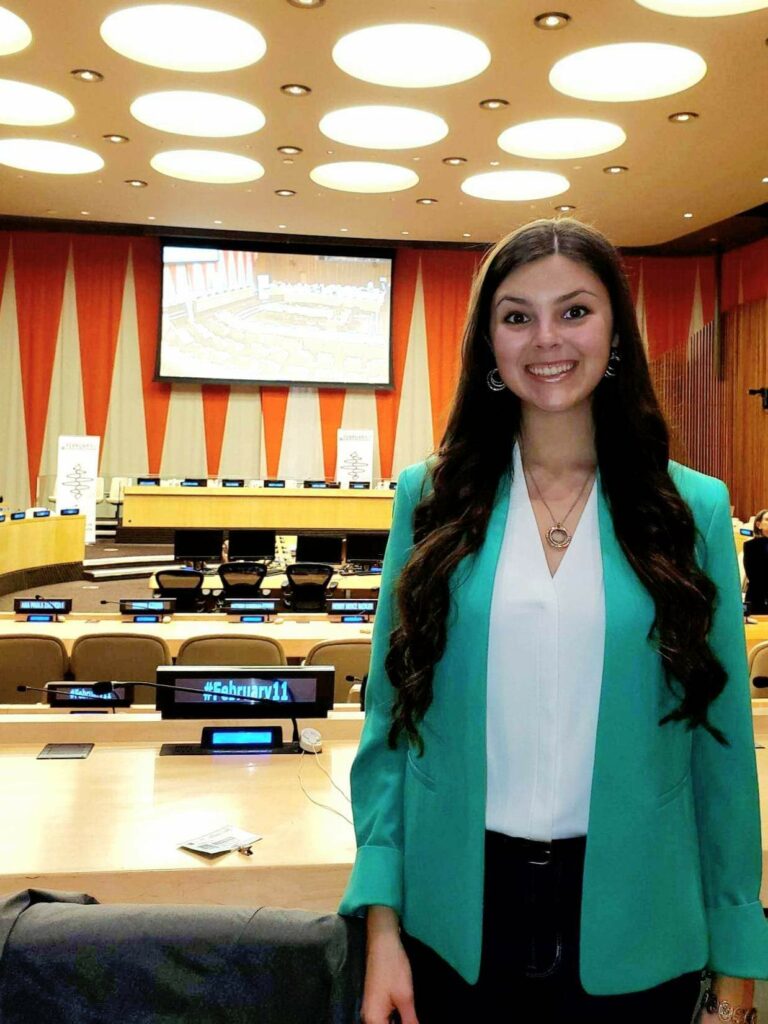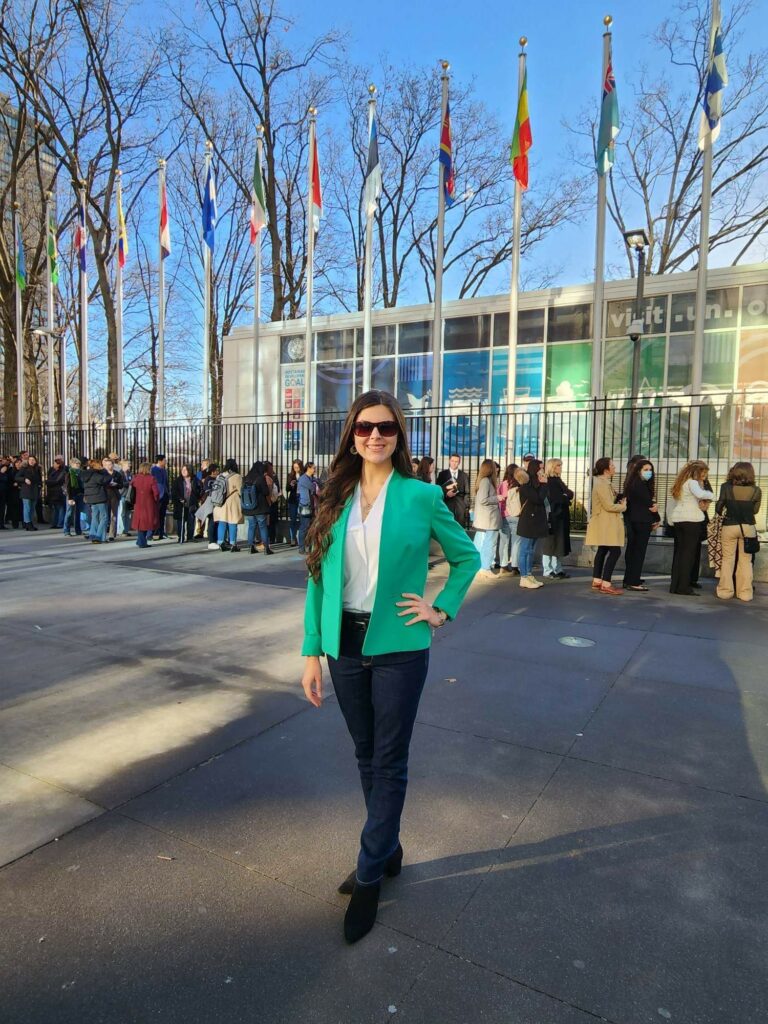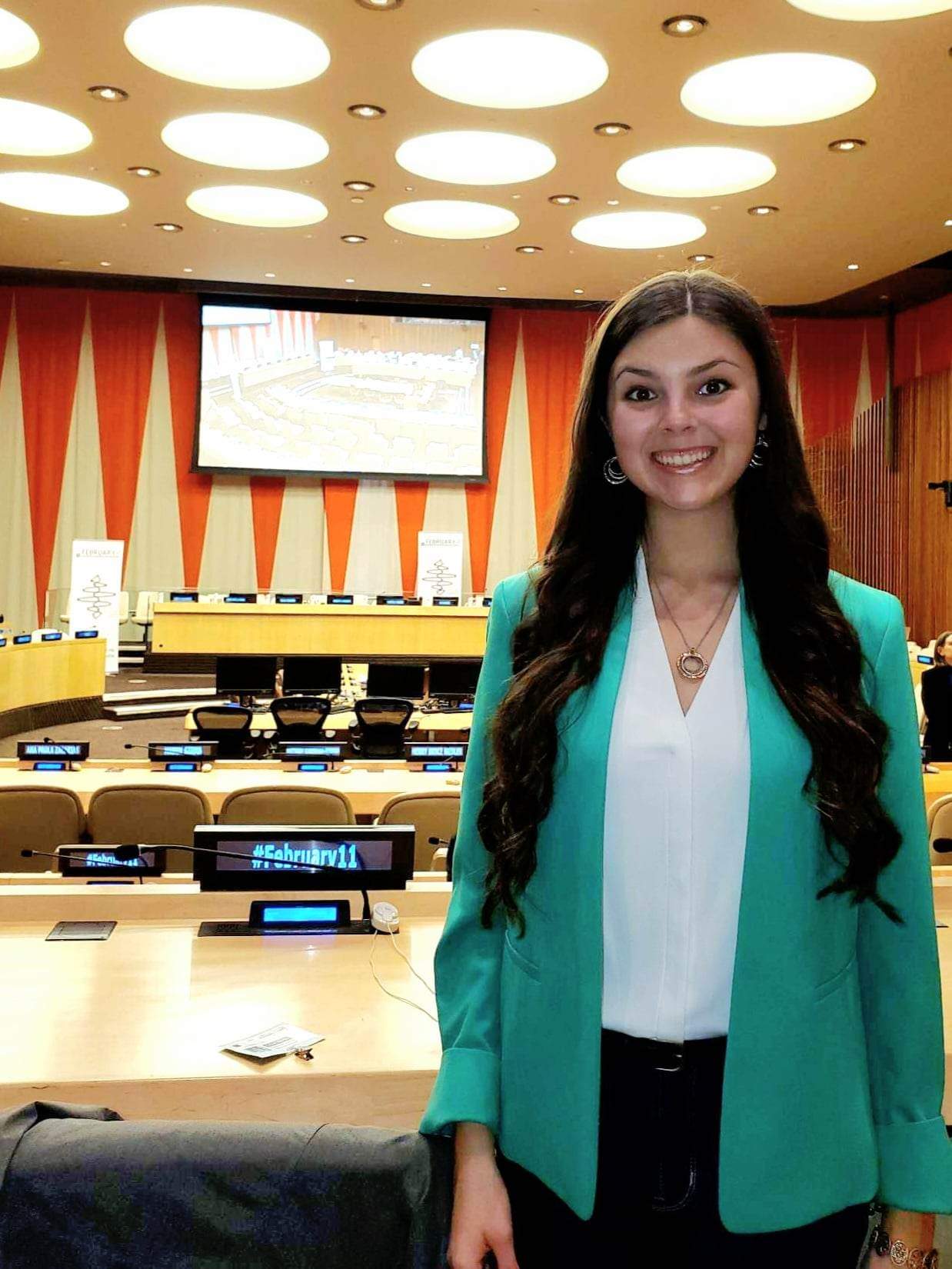
On a chilly mid-February morning in New York, religious studies PhD student Avalon Jade Theisen waited in line to enter the United Nations headquarters for the United Nations 8th International Day of Women and Girls in Science Assembly. She watched as they raised the 194 flags into the gentle breeze just as the sun was peeking from behind the building.
She was invited to attend the assembly through Project Green Schools, an organization that works to inspire “the next generation of environmental leaders while engaging students at the intersection of STEM, energy, environment and public health,” according to the organization’s website.
Theisen has been a member of the Project Green Schools advisory board for a few years and was on their youth advisory board before that.
“Sometimes as part of my role with them, I’m invited to represent the organization at various events,” said Theisen.
At the assembly, she attended lectures by speakers from around the world, including Australia, Slovenia and Spain. Most of the speakers were professors or government workers who discussed sustainable development goals and gender equality.
Many of the speakers tied their work into goal 11, sustainable cities and communities, of the 17 sustainable development goals set by the United Nations.
Theisen was particularly amazed by the talk given by Dr. Mona Samer Minkara, assistant professor of bioengineering at Northeastern University in Massachusetts. Minkara holds a PhD in chemistry and is completely blind. While going through her program, there were very few resources to adapt traditional learning styles to her needs.
“She talked about how she first saw this as a challenge, but as she got farther in her program, and eventually, her career, she realized that she was able to check these patterns that her seeing peers could not,” said Theisen.
“Everyone else would look at, say, a computer screen and see the models there. She would have to create a mathematical formula and think of the movement of it in her head. And so, because of that, she is able to make these new discoveries that people with multiple years of data had not previously been able to do.”
Along with attending lectures from professional researchers and organizers, she got to meet other students who shared her passion for gender equality and learning.
Theisen’s own research focuses on religiously based environmental nonprofits and their advocacy efforts. Attending the assembly allowed her to engage with many ideas of how science relates to the environment, which she found relevant to her own research.
“I think it’s just so empowering,” said Theisen. “So many people all around the world, just in one place. all there to promote gender equality and learning.”


